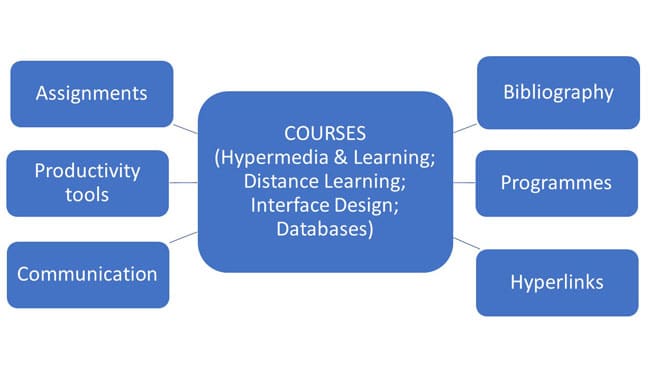Distance Learning Unit / DLU
Video Presentation of Distance Learning Unit
- Purpose
The Distance Learning Unit (DLU) at Neapolis University uses the most modern electronic technology for a platform that offers students postgraduate programmes of study in contemporary specializations. The purpose of DLU is to support the students and academics of the University in both long-term and short-term distance education. The basic philosophy of the DLU is to assure equality in access of information and respect towards the needs of each student of our University. Our vision is to create a unit that will be a prototype in distance learning for all universities that offer similar programmes of study.
The objectives of DLU are:
- The provision of distance education in response to the needs of:
- Students, while ensuring that the objectives and results of each course are achieved
- Academic staff involved in distance learning to be able to use and enrich the electronic materials and resources that are available and usable by DLU technology.
- The use of the electronic platform for the strengthening of the research and development of the University for benefiting students, the academic community and the local community of Cyprus.
- Linking of DLU with private and public sectors to maintain a competitive edge in a community of knowledge and continuous development
- Programmes available via DLU
Click here to see all Distance Learning Programmes
- The Educational Model
The educational model applied by Neapolis University in the DLU is based on the structure of
e-learning. The development of DLU was based on the many years of experience and conclusions of higher education institutions from around the world.
More specifically, the experience of The Hellenic Open University and The Open University of Cyprus and Open University of Israel were taken into consideration and applied. The structure of the program of courses and electronic tools offer students the flexibility for their distance learning educational experience throughout their studies.
Online Education
Each programme of study offered by distance learning is structured and provided with a complete study guide. It adheres to the basic objectives of training in the electronic environment of distance learning.
The educational model used (Figure 1) in each curriculum includes a personalized training package that allows students to have access to material that has been offered and posted on the electronic platform and discussed with the teacher in person or by meeting with them in a modern remote communication lesson (teleconference).
Students can also use productivity tools in various communication environments, such as group conference calls and webinars, which help the student develop online learning. Students will learn from a range of actions and tasks assigned to them using the electronic platform that the University offers.
Figure 1
Bridging the technology gap
This electronic educational platform used by Neapolis University is designed to achieve the best learning outcomes for students. The platform for distance learning allows students to easily learn their capabilities and how to use and choose the way that best suits them for a flexible and personalized learning style.
Face to Face Training
Besides the videotaped lectures and instructions that are available to students, Neapolis University has leased an exclusive line for use of the distance learning programs that are offered remotely. So the impersonal character and anonymity of distance education is diminished because students can see live, in specially designed areas, the professor or an expert and to ask questions and enjoy the positive results from the virtual student participation from various regions of Greece and Cyprus.
Online Resources
The resources for the online e-learning include educational materials available for reading of each course, links to websites, online communications and multimedia. The tools of the platform make it easier for students and teachers to interact with the various forms of training material and participate in learning through the sharing of knowledge. This multifactorial environment provides students with favorable conditions for flexible and personalized learning, which combines the advantages of modern methods of distance learning.







